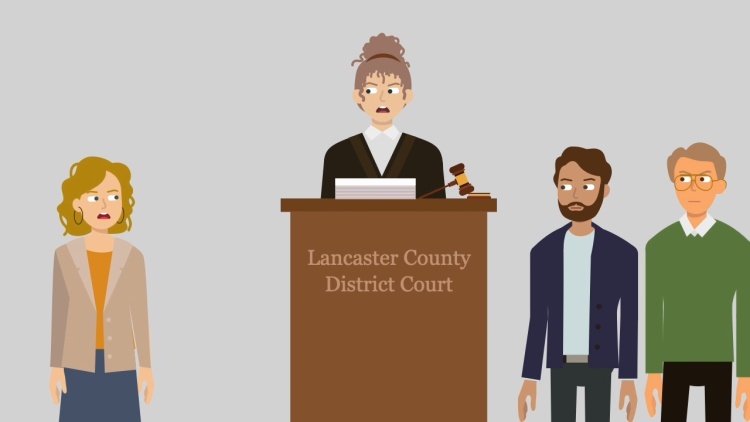Giles v. Sheridan
Nebraska Supreme Court
179 Neb. 257, 137 N.W.2d 828 (1965)
- Written by Samantha Arena, JD
Facts
An October 1962 deed granted property to Helen and John Sheridan (defendants), as a married couple, and Minnie Giles (plaintiff), as joint tenants, subject to the balance of an existing mortgage with First Federal Savings Bank (the bank). The deed further provided that the grantees agreed to assume and pay such mortgage. At the time of sale, Minnie paid $12,121.04 of the purchase price. Two months later, Minnie gave a check to the bank in the amount of $19,003, in payment of the mortgage, while Helen paid $686. Thereafter, Minnie conveyed a one-twentieth interest in the property to Harley Giles, subject to Minnie’s life estate. Helen died in 1964, survived by John and their three children. Minnie instituted a partition action in order to establish the interests of all parties in the property. The trial court concluded that Minnie was entitled to nineteen-twentieths of a one-third interest in the property, plus the sum of $13,135 from her cotenants for reimbursement of the mortgage payments. The court further concluded that Harley was entitled to a one-sixtieth interest, subject to Minnie’s life estate, and that John Sheridan was entitled to two-thirds interest in the property, subject to a lien of $13,135 payable to Minnie as reimbursement for her mortgage payments.
Rule of Law
Issue
Holding and Reasoning (Spencer, J.)
What to do next…
Here's why 907,000 law students have relied on our case briefs:
- Written by law professors and practitioners, not other law students. 47,100 briefs, keyed to 996 casebooks. Top-notch customer support.
- The right amount of information, includes the facts, issues, rule of law, holding and reasoning, and any concurrences and dissents.
- Access in your classes, works on your mobile and tablet. Massive library of related video lessons and high quality multiple-choice questions.
- Easy to use, uniform format for every case brief. Written in plain English, not in legalese. Our briefs summarize and simplify; they don’t just repeat the court’s language.





